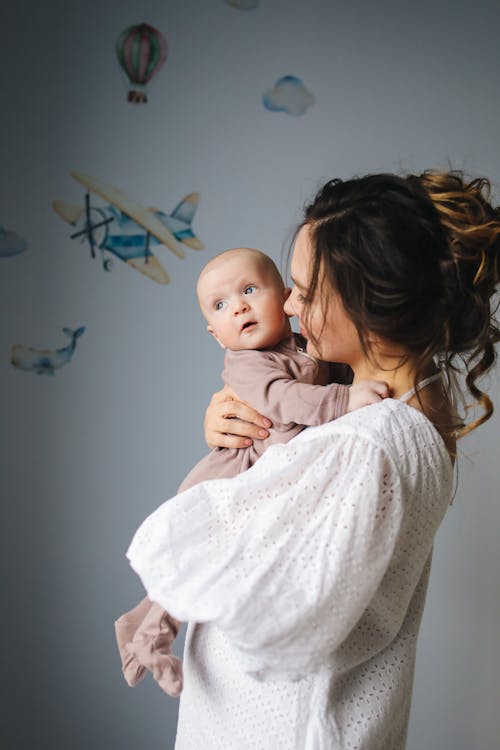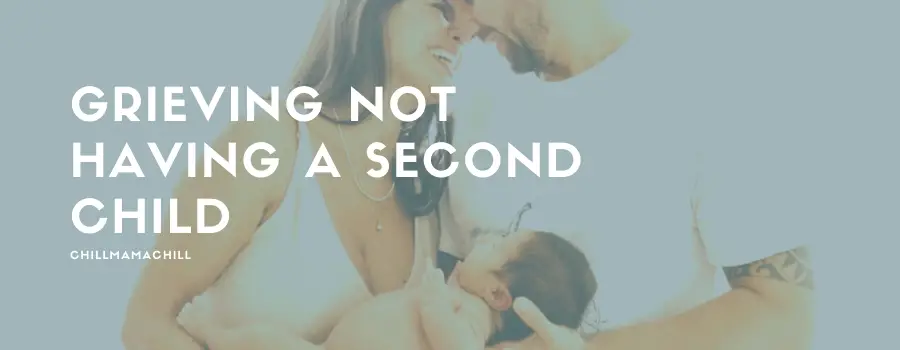Your first baby came soon after you two got together, a natural pregnancy without complications whatsoever. But you decided to wait a while, or you weren’t sure about getting another. Maybe you’ve been trying to conceive without avail, and you’re wondering if you’ll ever stop grieving not having a second child.
Grieving not having a second child is a tangible loss, one that can continue taunting you until menopause negates the possibilities. If you are not ready to stop trying to conceive, obsessing about it only evokes worry, anxiety, and stress. Also, you’re missing out on your first child’s life, and if you seek support, there are other ways to channel your pain.
As one 35-year-old single-child mum put it, there’s a visceral pain of not having had another baby; an ache every day, dreams, the illusion of a chubby warm body in your arms. Here are some tips I’ve put together to help you deal with unrequited second baby fever and consequent grief.
Why Do I Feel Bereaved When Grieving Not Having a Second Child?
Are you hurting over not having a second child, obsessed with how many kids your friends have? Have thoughts about another baby been playing on your mind often, trying to stop but can’t? It’s a loss, and as a result, what you’re experiencing is grief similar to that of bereavement.

You were a late starter, having your firstborn after the age of 35, and by 38, pangs for a second are starting to bite. Maybe you want another baby, but your husband doesn’t, but your nurturing instincts and having more love to give keep you awake at night.
It’s easy to go on focusing on the despair and hopelessness that can afflict a single-child mum who, for one reason or another, can’t have a second baby. Saying that you’ll get over it is insensitive and pointless, but your heart can heal, allowing you to enjoy life again.
How Do I Cope With Grieving Not Having a Second Child?
Your lack of a second child can be a biological one, an unwilling spouse, or fear of a risky pregnancy, especially with age. However, you can cope and learn to move on from experiencing remorse, grief, or apprehension.
Whatever the case or circumstance that prevents you from having another baby, steps to overcoming include;
Expressing How You Feel
It would help if you acknowledged the emotions of grief and expressed them outwards despite their variety. Your expression may involve talking, writing, and singing, while you’ll also find a letting out with crying or screaming.
Assessing the Reality of Your Situation
If you are ever to cope with grieving not having a second child, you must be realistic with your life’s circumstances. Before moving forward, you must accept the fact that you’ll be getting another baby.
Instead of worrying about what might never be, you can incorporate some reflection exercises into your daily schedule. These will involve;
- Focus on what is and future possibilities. You can spend more time and resources invested in your first child or engage close relatives for sibling-like relationships.
- Imagining a future with one child, with plans, will come to fruition faster due to a surplus of resources.
- Get rid of pain triggers or reminders such as baby items. Give away the remaining clothes or toys you’ve been hoarding in the hopes of getting them to another user.
Placing Your Situation in Perspective
Relevant to what else is going on around you, your pain and grief for not hang a second child can dim in comparison if you only noticed. Everyone is dealing with situations in life that require courage and perseverance, such as deaths, illnesses, or relations in prison. If you relate to others, especially those facing involuntary childlessness, you won’t feel so alone.

Keeping an Eye on Your Health
While grieving not having a second child, you may be neglecting to eat healthy foods, sleep or follow through on exercises. If you don’t maintain your health, or hygiene for that matter, the acceptance process can become complicated.
Finding Out How to Cope with Grief
Grief means a sense of loss, one that you can experience, whether it’s about not having a second child or when a close relative or friend dies. You must understand how this debilitating phenomenon manifests so that you’re in a better position to manage it.
The stages of grief include;
- Denial: In this instance, you’re still in disbelief and unable to accept that you may never have a second child.
- Despair: It’s the most easily identifiable grieving stage, where you become depressed and withdrawn, wallowing in misery or self-doubt.
- Remorse: A stage that can result in unnecessary guilt, you become remorseful when you begin to blame or question yourself for not having a second child.
- Anger: In this stage of grief, you’ll be angry, not at anyone or anything in particular, although your husband can be a target if he’s the obstacle to your having a second child.
- Fear: After the anger subsides, you’ll get a sense of anxiety or panic that translates to fear regarding the reality of single child motherhood.
- Physical Agony: Grief manifests itself with physical symptoms like a change in appetite, insomnia, fatigue, unexplained aches, nausea, and headaches.
Get Moral and Emotional Help
External assistance to cope with grieving not having a second child is essential if you’re ever moving on. This form of support is available from therapists and counselors who are professionally trained to help you overcome grief emotions.
You can also find support groups that connect you with others who are undergoing the same experience. These, alongside friends, relatives, or religious organizations, can be a source of comfort and advice. You’ll deal effectively with grieving not having a second child if you open up to those closest to you.
Conclusion
To fully acclimate to living without grieving having a second child, you’ll need to confront situational issues. These include the blame you’ll shift on an unwilling spouse and the subsequent strain that’s placed on your relationship.
You won’t overcome the loss and despair if you carry resentment against your partner. A couples therapist helps you both work through issues, and you’ll need to rebuild the damage. Communicating with your unwilling husband and clearly stating how you feel will allow you to revisit the problem later, opening up possibilities.

I’m Cathrine and I’m a 39-year-old mother of 3 from Utica, New York. And I’m extremely happy you’ve come to visit my hide-out on the web. Here I post about everything related to family-life and usually it will involve babies and lessons I’ve learned over the years from experts, friends, and my own mistakes. So hopefully you will find what i write fun and informational!

